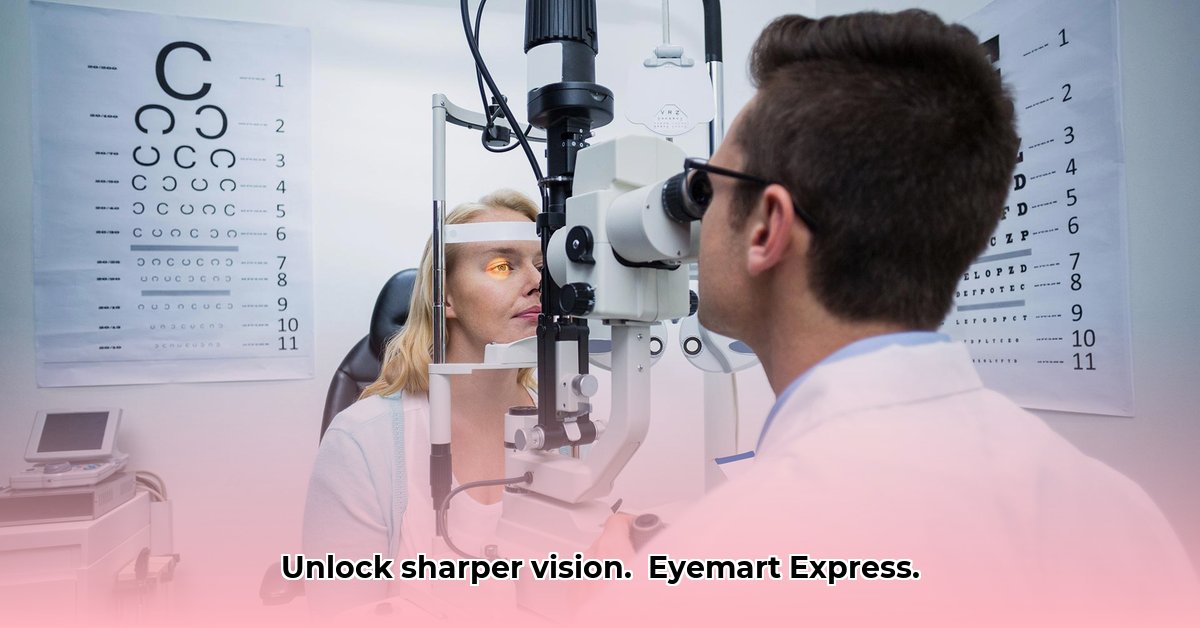
Seeing clearly is essential for a fulfilling life. But many eye problems develop silently, highlighting the importance of regular eye exams. This guide explains why regular eye exams are crucial, what to expect during one, and how Eyemart Express can simplify your eye care journey.
Why Regular Eye Exams Are Crucial
Did you know that eye exams can detect more than just vision problems? They are a vital part of your overall health screening. A comprehensive eye exam allows your eye doctor to spot early signs of conditions like diabetes and high blood pressure, often before you experience any symptoms. Early detection significantly improves the chances of effective management. Don't underestimate the power of a routine eye exam for your overall wellbeing.
What Happens During Your Eye Exam?
Your eye exam typically involves several key steps:
Visual Acuity Test: This classic test assesses your ability to see at various distances using a chart with letters or numbers. It helps determine the need for corrective lenses.
Refraction: This procedure measures how well your eyes focus. Special instruments help your doctor determine the precise prescription needed for optimal vision correction.
Visual Field Test: This test evaluates your peripheral vision, checking for any blind spots that could indicate underlying health issues. You’ll typically look at a central point while identifying lights or objects appearing in your peripheral vision.
Internal Eye Examination: Your eye doctor will thoroughly examine the internal structures of your eyes, including the retina and optic nerve, looking for any signs of disease or abnormalities. This comprehensive check is crucial for early diagnosis.
Your doctor will explain each step clearly, ensuring you understand the process.
Eye Exam Frequency Based on Age
The frequency of your eye exams depends on age and any existing health concerns. The following table provides general guidelines; however, always consult your eye doctor for personalized advice:
| Age Group | Recommended Frequency |
|---|---|
| Children (0-2) | Annually |
| Children (3-5) | Every 2 years |
| Children (6-17) | Every 2 years |
| Adults (18-39) | Every 2 years |
| Adults (40-64) | Every 1-2 years |
| Adults (65+) | Annually |
| At-Risk Patients | More frequently (as advised) |
Note: Individuals with a family history of eye disease, diabetes, high blood pressure, or other conditions may require more frequent exams.
Understanding Your Eye Care Team
Knowing the roles of different eye care professionals helps you navigate your eye health journey:
Optometrists: These primary eye care providers perform comprehensive eye exams, diagnose and treat common conditions, and prescribe eyeglasses and contact lenses. Eyemart Express optometrists provide this level of care.
Ophthalmologists: These are medical doctors specializing in eye surgery and complex eye diseases. They’re consulted for serious conditions or surgical needs.
Opticians: Opticians fill eyeglass and contact lens prescriptions, ensuring you receive the proper lenses and help you choose frames.
Eyemart Express: Convenient Eye Care
Eyemart Express aims to make eye care more accessible. Many locations offer walk-in appointments for convenience, although scheduling an appointment is recommended for a more thorough examination. They also typically offer a wide selection of frames at various price points, making it a one-stop shop for your eye care needs. Their widespread availability simplifies finding a location near you.
Schedule Your Eye Exam Today!
Protecting your vision is a priority, and regular eye exams are key. Visit the Eyemart Express website 1 to find a location near you and schedule your appointment. Don't delay – your eye health is worth it!